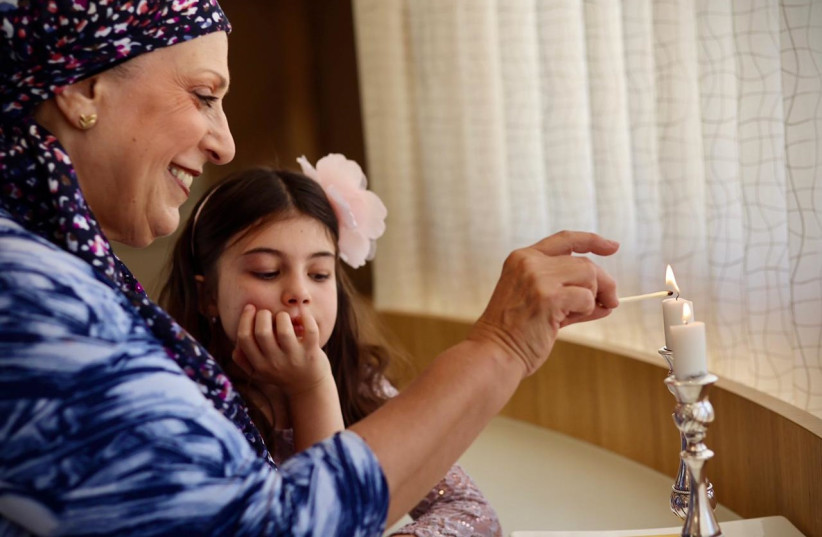In a world where the vast majority of books about Orthodox Jewish life are written by and about men, it’s always refreshing to read a book written by a woman about her own spiritual Jewish journey.
God Said What?! #MyOrthodoxLife is reminiscent of The Skeptic and the Rabbi: Falling in Love with Faith by Judy Gruen (2017). Both books are about young, secular Jewish women who get involved with men who are significantly more serious about their Jewish commitments than they are. Inspired by a desire to be with a particular man, both Gruen and Feldman undertake a journey to discover whether there is anything in traditional Judaism that speaks to them.
Spoiler alert: Both women found their path in Orthodoxy and wrote their memoirs from a place of commitment to traditional Jewish life.
The story of a secular Jewish woman choosing Orthodox Judaism
That doesn’t mean the early stages of the search came easily. Feldman, who found herself studying Torah in Israel at the age of 23, wrote that many of the people she encountered in her classes or those otherwise new to Jewish observance were there because “they had felt pulled either from experiencing a Shabbos table or had met religious people and liked the philosophy.”

About herself at that stage, she wrote, “That was not my experience. I was fighting everything tooth and nail and was only there because someone I loved had become religious.”
"I was fighting everything tooth and nail and was only there because someone I loved had become religious."
Miriam Racquel (Meryl) Feldman
Feldman met and fell in love with David in college. After spending his junior year in Israel, David sent her a 13-page missive about how his perspective had been changed by the experience, and he invited her to join him.
Gobsmacked by how different David seemed from the way he had been in college, she brought the letter to a local Reform rabbi to ask for help in understanding what had happened to him. In Feldman’s recounting, the rabbi advised her that her boyfriend had been seized by a cult.
The rabbi described what had happened to her boyfriend in this way: “There are Orthodox religious Jews who stand around the Western Wall in Jerusalem, trying to ‘catch’ unsuspecting secular Jews, especially young college students. They act very friendly, invite them for a Friday night Sabbath meal, and charm them with delicious food. They intrigue their ‘guests’ with conversation regarding the meaning of life and then try to entice them into signing up for religious-oriented programs and schools called yeshivas.”
On the advice of the rabbi, Feldman changed her summer travel plans and flew to Israel to try to “rescue” David from the cult. And that’s where the story of her transition begins.
Understanding the value of the constraints of a Torah lifestyle
GOD SAID What?! #MyOrthodoxLife took Feldman eight years to write and was written with two messages. The primary goal of the book is to tell the story of how a young Jewish woman, initially antagonistic toward what she perceived as the constraints of a Torah lifestyle, came to understand their value for herself.
Simultaneously, throughout the book, Feldman teaches Jewish spiritual concepts by introducing them at the point in her story when she first came to learn about them. For example, introducing the concept of reincarnation in Jewish thought, she puts the explanation into the mouth of one of her teachers.
“Rabbi Majeski slowly twirled the pen he was holding in his hands. ‘Then they have fulfilled their mission here on Earth, in the physical realm, and now move into the realm of souls. They have completed their life’s mission – at least for this lifetime. Their soul may return again – as a gilgul, a reincarnation – and then they have a different mission as a soul in a different body.’”
As the story unfolds, the reader witnesses Feldman’s initial hostility soften, a bit at a time, as she describes an experience that touched her or a teaching that resonated. While Feldman doesn’t shy away from acknowledging her initial shock at some of the ideas and lifestyle changes to which she was exposed in the early stages of her journey, she does a good job of carrying the reader through her gradual spiritual transition. At first, she can’t understand how David, an intelligent young college student, could “fall for something like that.” By the end of the book, after experiencing her own religious transition, Feldman no longer questions.
Although Feldman writes from, and currently lives in the US, a significant part of God Said What?! #MyOrthodoxLife is set in Israel.
This book is ideal for readers who enjoy contemporary Jewish memoirs and anyone curious about the traditional Jewish lifestyle.
God Said What?! #MyOrthodoxLife
By Miriam Racquel (Meryl) Feldman
Harmony Press
502 pages; $24.99
